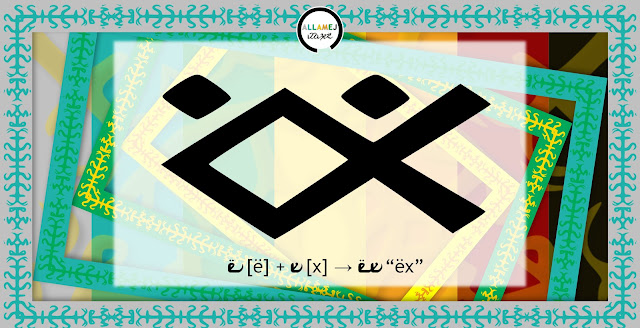Àṣẹ | Axé | Ëx
▬ ▬ ▬ ▬ ▬ ▬ ▬
Àṣẹ
(versão em português logo abaixo)
The word “Ëx” comes from Yoruba language and philosophy “Àṣẹ”. In Allamej it absorbs the very deep meaning of the word and is applied into the language structure. Just like “Àṣẹ”, “Ëx” brings up the meaning of the power that makes things happen and produces change, someway similar to the Chinese concept of Tao. “Ëx” is an important root, meaning maker, and grammar partical inspirer in Allamej language. "Àṣẹ" is a famous word in cultures influenced by Yoruba peoples such as Brazilian afro-tradition, written in Portuguese “Axé”.
For explanations on the letters' origin shape click Allamej Alphabet.
▬ ▬ ▬ ▬ ▬ ▬ ▬
Axé
A palavra “Ëx” vem da língua iorubá e da filosofia “Àṣẹ”. Em Allamej, absorve um significado mais profundo que se relaciona com a estrutura da língua. Assim como “Àṣẹ”, “Ëx” traz à tona o significado do poder que faz as coisas acontecerem e produz mudanças, algo semelhante ao conceito chinês de "Tao". “Ëx” é uma raiz importante, criadora de significado e inspiradora da estrutura do Allamej. "Àṣẹ" é uma palavra famosa em culturas influenciadas pelos povos iorubás, como a brasileira em que é escrita na versão portuguesa: “Axé”
Para explicações sobre a origem das letras e suas formas clique aqui Allamej Alphabet.
▬ ▬ ▬ ▬ ▬ ▬ ▬




Comments
Post a Comment